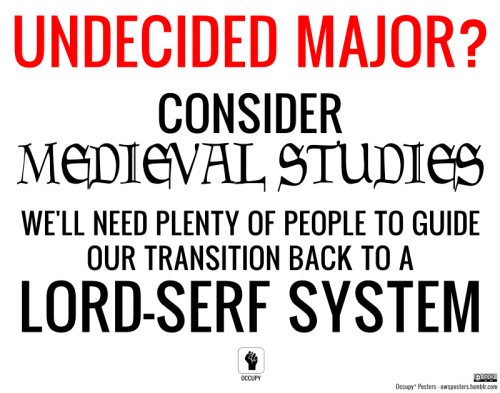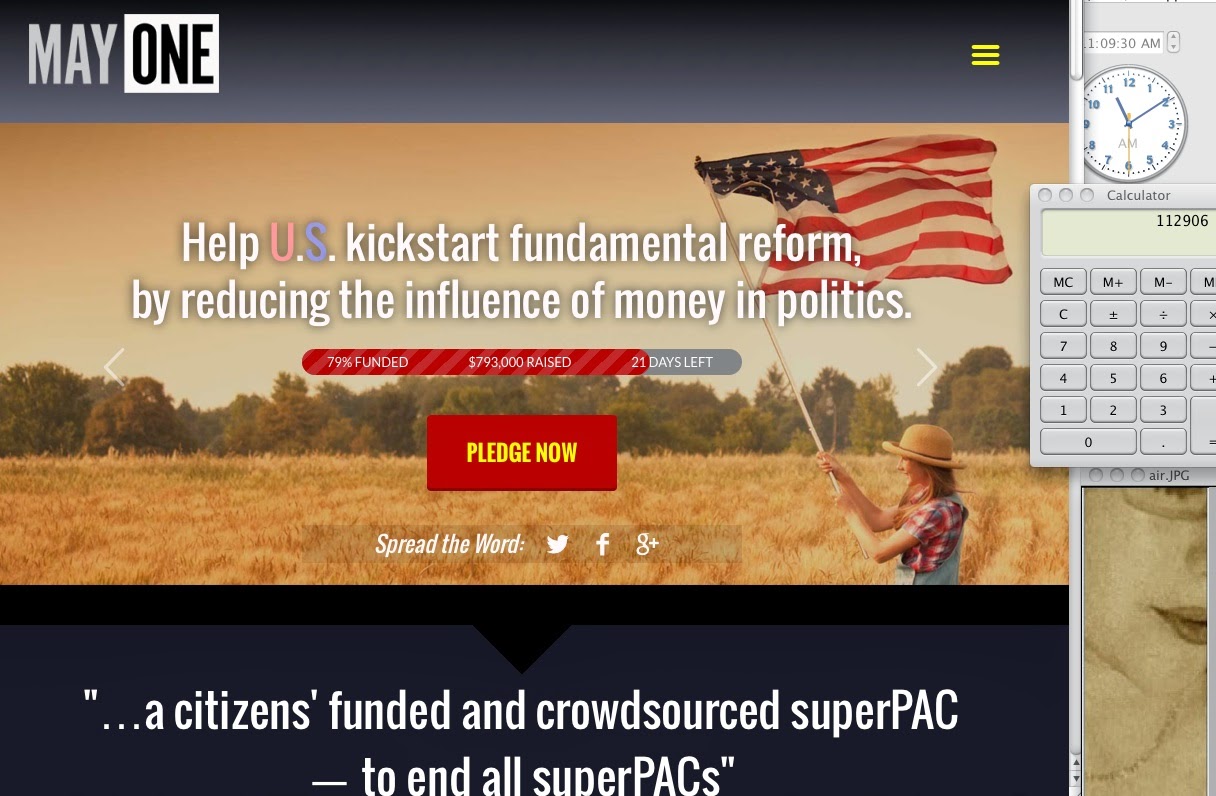"When the preferences of economic elites and the stands of organized interest groups are controlled for, the preferences of the average American appear to have only a minuscule, near-zero, statistically non-significant impact upon public policy.”
Testing Theories of American Politics: Elites, Interest Groups, and Average Citizens
By Martin Gilens and Benjamin I. Page
Perspectives on Politics, April 9, 2014, forthcoming Fall 2014
Abstract
Each of four theoretical traditions in the study of American politics — which can be characterized as theories of Majoritarian Electoral Democracy, Economic Elite Domination, and two types of interest group pluralism, Majoritarian Pluralism and Biased Pluralism — offers different predictions about which sets of actors have how much influence over public policy: average citizens; economic elites; and organized interest groups, mass-based or business-oriented.
A great deal of empirical research speaks to the policy influence of one or another set of actors, but until recently it has not been possible to test these contrasting theoretical predictions against each other within a single statistical model. This paper reports on an effort to do so, using a unique data set that includes measures of the key variables for 1,779 policy issues.
Multivariate analysis indicates that economic elites and organized groups representing business interests have substantial independent impacts on U.S. government policy, while average citizens and mass-based interest groups have little or no independent influence. The results provide substantial support for theories of Economic Elite Domination and for theories of Biased Pluralism, but not for theories of Majoritarian Electoral Democracy or Majoritarian Pluralism.
American Democracy?
Each of our four theoretical traditions (Majoritarian Electoral Democracy, Economic Elite Domination, Majoritarian Interest Group Pluralism, and Biased Pluralism) emphasizes different sets of actors as critical in determining U.S. policy outcomes, and each tradition has engendered a large empirical literature that seems to show a particular set of actors to be highly influential. Yet nearly all the empirical evidence has been essentially bivariate. Until very recently it has not been possible to test these theories against each other in a systematic, quantitative fashion.
By directly pitting the predictions of ideal-type theories against each other within a single statistical model (using a unique data set that includes imperfect but useful measures of the key independent variables for nearly two thousand policy issues), we have been able to produce some striking findings. One is the nearly total failure of “median voter” and other Majoritarian Electoral Democracy theories. When the preferences of economic elites and the stands of organized interest groups are controlled for, the preferences of the average American appear to have only a minuscule, near-zero, statistically non-significant impact upon public policy.
Interest groups do have substantial independent impacts on policy, and a few groups (particularly labor unions) represent average citizens’ views reasonably well. But the interest group system as a whole does not. Over-all, net interest group alignments are not significantly related to the preferences of average citizens. The net alignments of the most influential, business oriented groups are negatively related to the average citizen’s wishes. So existing interest groups do not serve effectively as transmission belts for the wishes of the populace as a whole.
Furthermore, the preferences of economic elites (as measured by our proxy, the preferences of “affluent” citizens) have far more independent impact upon policy change than the preferences of average citizens do. To be sure, this does not mean that ordinary citizens always lose out; they fairly often get the policies they favor, but only because those policies happen also to be preferred by the economically elite citizens who wield the actual influence.
What do our findings say about democracy in America? They certainly constitute troubling news for advocates of “populistic” democracy, who want governments to respond primarily or exclusively to the policy preferences of their citizens. In the United States, our findings indicate, the majority does not rule – at least not in the causal sense of actually determining policy outcomes. When a majority of citizens disagrees with economic elites and/or with organized interests, they generally lose. Moreover, because of the strong status quo bias built into the U.S. political system, even when fairly large majorities of Americans favor policy change, they generally do not get it.
A possible objection to populistic democracy is that average citizens are inattentive to politics and ignorant about public policy; why should we worry if their poorly informed preferences do not influence policy making? Perhaps economic elites and interest group leaders enjoy greater policy expertise than the average citizen does. Perhaps they know better which policies will benefit everyone, and perhaps they seek the common good, rather than selfish ends, when deciding which policies to support.
But we tend to doubt it. We believe instead that — collectively — ordinary citizens generally know their own values and interests pretty well, and that their expressed policy preferences are worthy of respect. Moreover, we are not so sure about the informational advantages of elites. Yes, detailed policy knowledge tends to rise with income and status.
Surely wealthy Americans and corporate executives tend to know a lot about tax and regulatory policies that directly affect them. But how much do they know about the human impact of Social Security, Medicare, Food Stamps, or unemployment insurance, none of which is likely to be crucial to their own well-being? Most important, we see no reason to think that informational expertise is always accompanied by an inclination to transcend one’s own interests or a determination to work for the common good.
Despite the seemingly strong empirical support in previous studies for theories of majoritarian democracy, our analyses suggest that majorities of the American public actually have little influence over the policies our government adopts. Americans do enjoy many features central to democratic governance, such as regular elections, freedom of speech and association, and a widespread (if still contested) franchise. But we believe that if policymaking is dominated by powerful business organizations and a small number of affluent Americans, then America’s claims to being a democratic society are seriously threatened.
http://www.princeton.edu/~mgilens/Gilens%20homepage%20materials/Gilens%2…
Martin Gilens and Benjamin Page present historical data that show that average Americans, even when represented by majoritarian interest groups, have negligible influence in shaping public policy. In sharp contrast, the economic elites and their business-oriented interest groups wield tremendous influence in public policy.
Thomas Piketty and Emmanuel Saez have shown that the flow of income to the top has resulted in a concentration of wealth that is not only self-sustaining but likely to perpetuate the transfer of more wealth to the wealthiest, at a cost to everyone else.
This combination — a concentration of wealth at the top with the domination of policymaking by the economic elite, does not bode well for new policies that would be established for the common good.
In health care reform, the common good would have been served by improving coverage through the removal of financial barriers to care and by expanding coverage to everyone. Instead, the interests of the economic elite were served by increasing the market for private insurance products that, for the majority, increased financial barriers to care and reduced choice of providers, while leaving tens of millions of the most vulnerable without any coverage. More wealth moves to the passive investors at the top, while the deterioration in coverage requires average Americans to spend more out-of-pocket through higher deductibles.
We desperately need a well-designed single payer system if we want everyone to have the health care that they should have. At this point it appears that the economic elites are not going to allow single payer, and we will have no say.
Even though our Constitution laid the plans for a democracy, by fiat we now have a plutarchy (plutocratic oligarchy). Although Gilens and Page have shown that our Majoritarian Electoral Democracy has “only a minuscule, near-zero, statistically non-significant impact upon public policy,” perhaps the people can still change that. Although recent history demonstrates citizen inertia, that does not necessarily lock in the future. Think of Social Security, Medicare, and the Civil Rights Act.
A decade ago, in a book review for the NEJM on “Universal Coverage: The Elusive Quest for National Health Insurance” by Rick Mayes, I wrote the following: “Mayes does give us hope. Although he acknowledges that critical junctures are rare, he notes that they do occur, especially in response to unmet social needs. Perhaps the deterioration in insurance coverage that has taken place may have brought us much closer to our next critical juncture than most of us realize.” (
http://www.pnhp.org/news/2005/july/rick-mayes-on-the-elusive-quest-for-n…)
So what can we do to reverse the process under which “policymaking is dominated by powerful business organizations and a small number of affluent Americans”? Will citizen action through education, coalitions and grassroots efforts be adequate? In spite of such ongoing efforts, we have certainly fallen short so far.
History has taken us to a point wherein the economic elite rules. Can the people revitalize democracy, or is the wealthy ruling class too powerful? If the elite are not responsive to our needs, will our nation be ripe for civil unrest? At the moment, citizen inertia continues to empower the economic elite.



